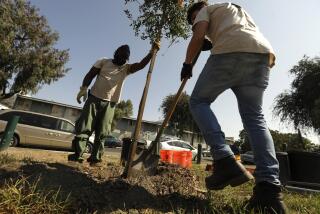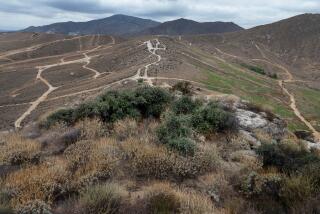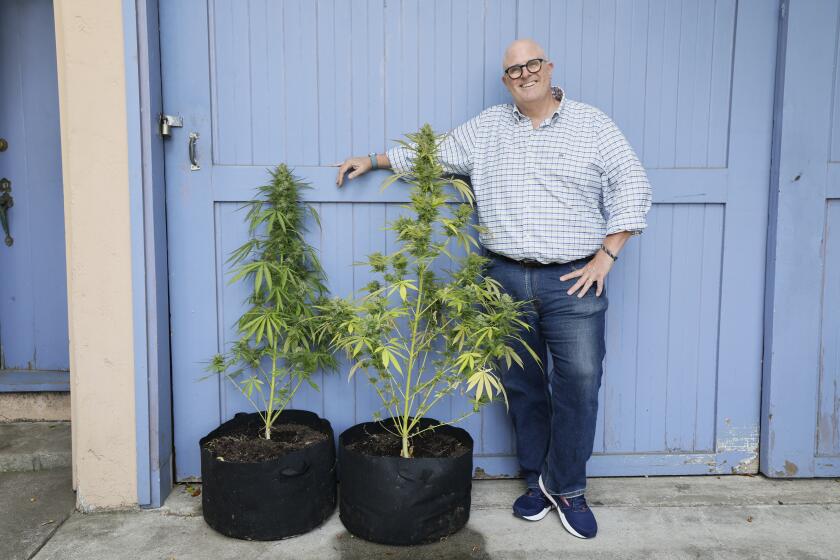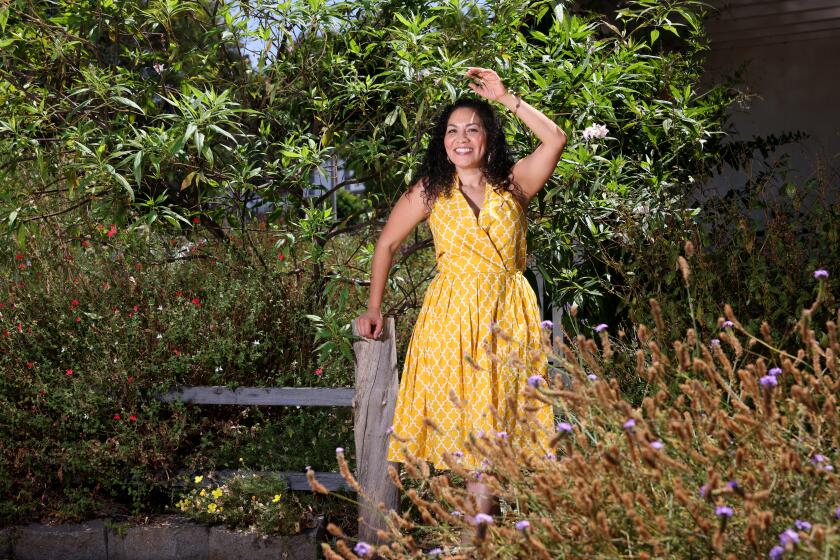Eucalyptus Trees Get Temporary Reprieve
They are tall, leafy, graceful and fragrant. And, for the time being, the 38 eucalyptus trees are safe, too.
After a consultant found that the eucalyptus trees on Lemon Drive and Sequoia Avenue are suffering from advanced age and decayed roots, Simi Valley public works officials wrote a report suggesting that the trees be uprooted for safety’s sake. In their place, heartier trees would be planted.
But that report didn’t satisfy City Council members, who said they wanted a detailed health report on each individual eucalyptus before anyone takes a chain saw to their slender trunks and reduces them to menthol-scented wood chips.
The council on Monday night granted a monthlong reprieve. The council will reconsider whether to uproot the eucalyptus trees at its Oct. 27 meeting.
“If there’s even one or two [trees] out there that could be saved, I’d like to do that,” said Councilwoman Barbara Williamson. “To go in and remove so many trees at once like that can be devastating to the community.”
Before the council sent the eucalyptus issue back to the city staff, Public Works Director Ron Coons explained the need to remove the trees.
During the high winds of the winter of 1996, three trees on the two streets blew over, revealing anemic root systems, he said. A consultant determined that the remaining 12 trees on Lemon Drive and 26 on Sequoia could also topple during future winter storms.
“They are considered to be hazardous,” Coons said.
While the consultant’s report does not present a tree-by-tree health evaluation, “all the trees have been found to be in decline,” he said.
Mayor Greg Stratton and his colleagues wanted to see proof. “This report, to me, looks a little thin,” he said.
Were a developer attempting to uproot trees, Stratton said, a two-page consultant’s report would be laughed out of the Planning Commission. The city should meet the same standards, he said.
The current report estimated that all tree removal and replacement would take place in December and cost about $25,700. The report recommends that, in the place of eucalyptus, red oaks, Raywood ashes and Chitalpas should be planted.
More to Read
Sign up for Essential California
The most important California stories and recommendations in your inbox every morning.
You may occasionally receive promotional content from the Los Angeles Times.










